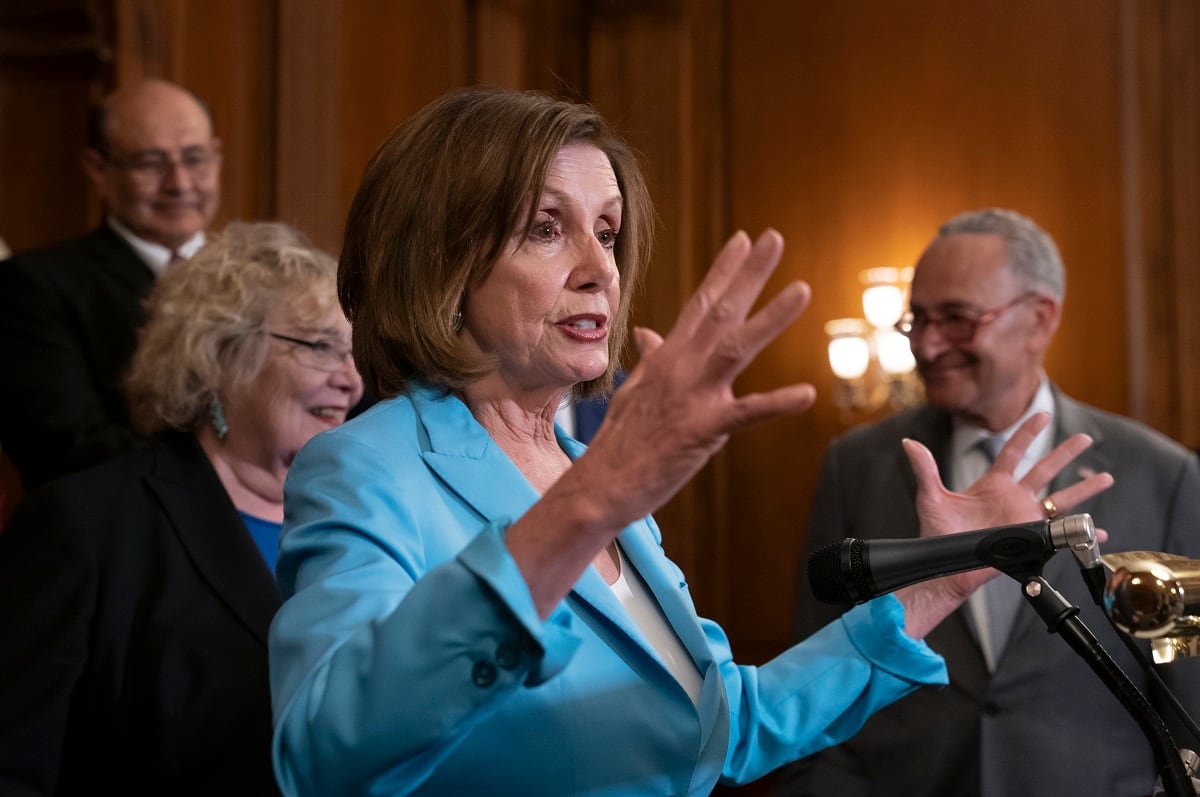WASHINGTON ― With Senate Republicans split on whether to pass a bipartisan $2.7 trillion budget deal, Senate Armed Services Committee Chairman Jim Inhofe worked to rally lawmakers Tuesday to the defense spending increase the deal represents.
Inhofe, R-Okla., delivered a floor speech amid reports Senate Republican leaders are working to whip support to avoid a repeat of last week’s House vote, where two-thirds of Republicans opposed the deal.
The deal contains $738 billion in military funding in fiscal 2020 ― above the $717 billion defense budget for 2019 and below the $750 billion that Inhofe and House Armed Services Committee ranking member Mac Thornberry convinced the president to request. Thornberry, R-Texas, and Inhofe say they are backing the deal because it provides the military with stability and more than the $733 billion in the House’s passed defense policy bill.
“I will take this smaller deal to give our military what it needs: predictability,” Inhofe said in the floor speech. “It’s also more than what the House passed in their defense authorization bill, which was dangerously low. Every member of the Armed Services Committee should vote for this.”
Inhofe cast the budget agreement as a “defense budget agreement,” an alternative to a one-year continuing resolution floated for a time by the White House, versus no deal, which would trigger a “haphazard” $71 billion budget cut via sequestration.
Inhofe also noted that the deal hammered out by the White House and congressional leaders funds both a 3 percent pay raise as well as investments in hypersonic weapons and aviation modernization.
RELATED

Earlier in the day, a number of Senate Republicans were undecided, leaning against the deal or publicly opposed. The budget deal is linked to an increase in the soon-to-expire debt ceiling, seen as defying fiscally conservative principles.
One notable “no”: Senate Homeland Security and Governmental Affairs Committee Chairman Ron Johnson, R-Wis., said a debt ceiling increase should come with some structural reforms to the budget, namely his bipartisan bill to prevent government shutdowns.
“I’ve always asked for it, never got it, so I’ve never voted for an increase in the debt ceiling,” Johnson said. “We have no structural reforms, so I’m a ‘no.’ ”
SASC Personnel Subcommittee Chairman Thom Tillis, R-N.C., had not publicly announced a position Tuesday and seemed to be on the fence.
“On the one hand we have legitimate concerns about the debt, I’ve expressed them," Tillis told a reporter. "And on the other hand I have legitimate concerns about making it more difficult to deal with some of the military readiness concerns by not coming up with a funding deal.”
Senate Majority Leader Mitch McConnell, R-Ky., is expected to rally his caucus and muscle the bill through before lawmakers depart Washington this week for the Senate’s summer recess. How that would happen was unclear as of Tuesday evening, but a Democratic whip notice said negotiations were ongoing, "relative to a pathway for the Bipartisan Budget Act.”
Even if the bill passes the Senate, the deal represents top lines for defense and nondefense, leaving Congress to do the work of passing its 12 appropriations bills or risk a government shutdown.
How will spending bills be structured? Senate Appropriations Committee Chairman Richard Shelby, R-Ala., floated the idea of linking Defense Department spending with spending for Labor, Health and Human Services, Education, and Related Agencies, as well as Energy and Water.
“If we had Defense, Labor-HHS and Energy and Water, we would have three bills out of 12, about 70 percent of [all discretionary spending],” Shelby told reporters Tuesday. “I think joining some bills together will create an overwhelming majority, some critical mass [for] Democrats and Republicans to get together.”
RELATED

Still, lead appropriators seemed to have no plan Tuesday to avoid the homeland security spending disputes that shut down the government last year. The 35-day government shutdown that ended in January focused on the president’s demands for $5.7 billion for border wall construction and higher caps on the number of immigrants the government can detain.
Shelby said Tuesday he was temporarily putting off Department of Homeland Security spending issues for now. “I’m trying to avoid the macro right now, the big stuff,” he said.
Asked if there is a plan to solve those issues, the chairwoman for the Homeland Security Appropriations Subcommittee, Sen. Shelley Moore Capito, R-W.Va., quipped to reporters, “Hmm, that’s a question.” She quickly added that the issues were “a high priority for many of us. We’re just going to have to power through it.”
Joe Gould was the senior Pentagon reporter for Defense News, covering the intersection of national security policy, politics and the defense industry. He had previously served as Congress reporter.







